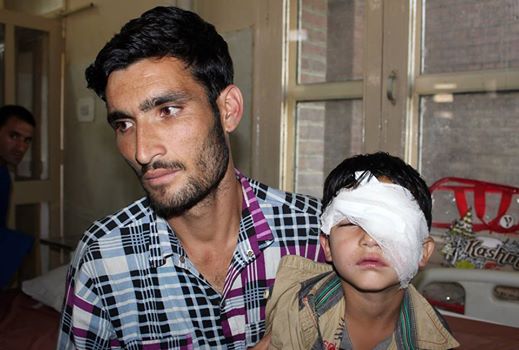
Indian Army has suggested the use of pepper gunshots, chili grenades and sound cannons instead of pellet guns that security forces use to control crowds in violence-hit Kashmir.
The Chief of Northern Army Command, Lieutenant General DS Hooda, was quoted as saying by the Hindustan Times that the recommendation was made to a committee appointed by the central government. The committee is reviewing the use of pellet guns during protests across Kashmir after the killing of Hizbul Mujahideen commander Burhan Wani.
"Alternative non-lethal weapons are available to disperse crowds during demonstrations. The panel sought our inputs and we have suggested sonic weapons, pepper ammo and chili grenades could be less harmful. The government is looking at these options," Hooda told HT.
Sonic weapons emit ultra-high frequency blasts triggering ear-splitting sound to disperse crowds and are used by law-enforcement agencies across the globe. Pepper guns fire plastic shells containing pepper that burst on contact causing severe eye, nose and throat irritation.
Chili grenades are capable of causing intense physical discomfort, probably more than pepper guns. These grenades have been developed by military scientists of India. A concentrate from one of the world's hottest chilies, bhut jolokia or naga chili, is used to make these grenades.
Pellet guns have wounded thousands of protesters, especially children, blinding most of them for life. The use of these guns, now being touted as non-lethal, has triggered outrage across the country.
Curfew has been imposed in Kashmir since Wani was killed on July 8. Over 4,000 additional soldiers, on the orders of Hooda, have been deployed in southern Kashmir to tackle the situation.
"There's anger among the youth, we can't deny that. But the elements don't want to see the state return to peace," Hooda was quoted as saying by HT, adding that the unrest was being deliberately kept alive by internal (separatists) and external (Pakistan) elements.
"Hizbul Mujahideen and Lashkar-e-Taiba have openly supported the protests. They will support it with terrorist activities... The common man is suffering," Hooda said, blaming Pakistan for pushing militants into Kashmir to aggravate the situation.











